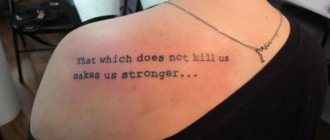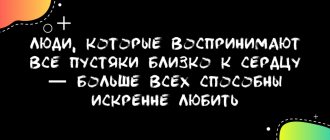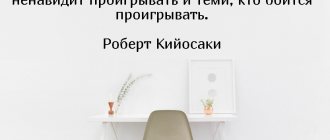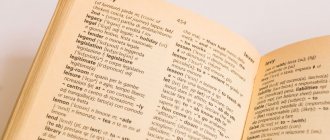History of critical thinking
The term appeared not so long ago, although the direction has been developing since ancient times. From what we know, the combination “critical thinking” was first used by the American philosopher and educator John Dewey , one of the pillars of modern American philosophy, in his book “As We Think,” which was first published at the beginning of the 20th century.
At the origins of critical thinking was the movement of skeptics: skepticism is a philosophical direction in which it is customary to doubt everything
Thomas Aquinas advocated a kind of constructive criticism ; he also drew attention to the fact that it is necessary to study not only the arguments “for” but also “against”. That is, we must always try to check whether there is something that contradicts our statement. René Descartes , author of the famous statement “I think; therefore, I exist,” also in his works and reasoning insisted that it was necessary to question and verify the results of experiments.
But, probably, among all the philosophers, mathematicians and thinkers, the one closest to us is Bertrand Russell , Nobel laureate in literature for his book “The History of Western Philosophy.” During his debates, including with representatives of religious institutions who asked him to prove that God does not exist, Russell came up with a speculative experiment called the “Flying Teapot.” Let's say I tell you that a porcelain teapot rotates in the orbit of our planet, but it cannot be seen in any telescope, it is so small - therefore, my statement, in principle, can be true, since it is difficult to refute.
From the conditions of this experiment, Russell put forward the principle of normal, constructive discussion - the burden of proof lies with the person making the statement
Attacking logic and common sense is one of the ways to manipulate public opinion, so critical thinking is very important, but not only for this reason, but also because there is too much information around us: according to IDC, by 2025 its volume will be 175 zettabytes. This figure is simply impossible to imagine! Let's say, if you record all this data on Blu-ray discs, then with stacks of them you can cover the distance from the Earth to the Moon 23 times.
An important role is also played by the fact that information is easily accessible (we always have a smartphone at hand), but useful information, that is, that which can really serve as a basis for solving some problems, is quite small. The more information, the lower the percentage of useful information.
Another phenomenon is that our brain is now rewiring the circuits that were previously responsible for searching for food to searching for information. That is, according to the assurances and experiments of neurophysiologists, the human brain begins to perceive information as food, and it is very easily accessible.
Therefore, it is extremely difficult for us to focus on one thing, and if a website page opens for more than 5 seconds, we leave it, because there is a lot of other “food” around. Why wait for this one to ripen? It is especially important to have developed critical thinking in our era of fake news, since now we need to check everything and limit our circle of information only to verified sources.
If we attend various conferences where analysts offer their versions of the most important skills of the present and future, read books and look at some authoritative sites, we will encounter critical thinking everywhere. One example is the World Economic Forum, where critical thinking has been one of the top 10 skills for several years.
Another argument in favor of critical thinking is that thinking itself, in principle, implies a critical approach. In Europe (and in America, although a little less so), critical thinking is a core discipline taught in middle and high school in a subject called “media literacy.” Unfortunately, this is not yet the case in our universities.
Teach yourself to think critically!
Teach yourself to think
critically!
“It is not thoughts that need to be taught, but thinking”
Emmanuel Kant
Smart thoughts
“..We can discover a new world for ourselves when we learn to ask the right questions”
K. Erickson
“Many people would rather die than think. And they die before they even begin.”
Bertrand Russell
“Criticism would, of course, be a terrible weapon for anyone if, fortunately, it itself was not subject to criticism” V. G. Belinsky
“Looking for small faults has long been a characteristic of minds that have risen little or nothing above mediocrity. Sublime minds are silent or object to the whole, but great minds create themselves, without judging anyone.”
G. Lichtenberg
“Without criticism there is no mutual understanding, and, therefore, no unification” F. Engels
“He who does not look at the world intelligently does not look at him intelligently.”
Hegel
“Criticism is sometimes not so much a science as a craft, requiring endurance rather than intelligence, diligence rather than ability, habit rather than talent.”
J. Labruyère
“Sincerity, balance, understanding of oneself and others are the keys to happiness and success in any field of activity. Especially in criticism" G. Selye
A person needs the ability to think critically to:
• consciously perceive the surrounding reality;
• learn to distinguish good from evil;
• be able to doubt;
• do not create an idol for yourself;
• do not become an object of manipulation and a blind tool in someone’s hands;
• do not be an unscrupulous manipulator yourself;
• act as a deceived person as little as possible;
• do not be drawn into dubious groups (companies, organizations, structures, associations, sects, etc.) that threaten the loss of reputation, self-esteem, well-being, family, freedom and even life;
• being in the power of love, nevertheless make a conscious choice of a partner;
• do not become a victim of scammers from politics, religion or crime;
• when believing in God, do not be a blind fanatic;
• be able to distinguish the true shepherd of human souls;
• be a soldier loyal to his homeland, but never become a war criminal;
• not be at the mercy of socially dangerous stereotypes and prejudices;
• think with your own head, be able to pose and solve the most difficult life questions;
• have your own opinion, be able to formulate it, argue it, discuss it with others, deepen it, and possibly change it;
• learn not only from your own mistakes, but also from the mistakes of others;
• be able to predict the consequences of your actions;
• soberly assess your weak and strong qualities;
• develop, improve yourself, become better, kinder, more generous;
• learn the truth throughout your life, realizing that this is an endless process;
• acquire a wonderful and exciting hobby for life - THINK!
Critical thinking and our children.
As for children, special attention should be paid to educational games, puzzles, and logic tasks. In addition, talk to young children about what is good and what is bad; whether the hero of a fairy tale, a film, or someone you know did the right thing. Do not judge others, but simply discuss specific actions and their consequences. Teach children to predict the results of their actions. Instill in them the ability to recognize the intentions of others (including bad ones). At the same time, it is important to instill caution, but not cowardice; healthy skepticism, but not cynicism; the ability to think critically, but not criticize.
It’s not easy, but at the same time it’s very interesting to think, analyze, draw conclusions together with children... It’s equally important to talk about different everyday stories with older children. It is also useful to discuss books and films in terms of how truthfully they reflect life. This will not only prepare children for adulthood, but will also help to form warm, trusting relationships with them.
But for this it is important to be friends with common sense, to critically comprehend the surrounding reality.
Critical thinking for adults.
One important aspect of critical thinking is the ability to resist manipulation.
Don't take anything for granted. Always try to understand what exactly they want to convince you of. Love people, believe them, but don’t trust anyone if the matter is connected with money, documents, or the fate of your family. Never make hasty, ill-considered decisions; immediately say a firm “no” if you are under pressure. If you are highly suggestible, simply do not make contact with strangers, distributors of various kinds, etc. Listen to those who want to warn you against taking a rash step. Be interested in other people, their inner world, destinies and everyday life. Ask those who are older about their experiences. But even in this case, do not take on faith everything that they tell you. Many people tend to embellish, fantasize, and present past events in the light of current socio-political realities. Always double-check what you hear by asking others, reading books, watching documentaries. Learn to compare the information presented by the media with your own life, with what you see and hear from others. The process of learning the truth is endless. Think, listen, remember, compare - and over time, you will begin to develop a fairly objective picture of the world around you, our past and present. If you live this way yourself, then you can easily teach this way of thinking to your children. Remember: as a teenager, critical thinking skills are vital to surviving in the difficult adult world, full of insidious traps and professional soul catchers. Does all this guarantee that a person will never be deceived or become an object of manipulation? Of course not. No one is immune from mistakes, but you can’t let your whole life become a mistake. And this is exactly what can happen if we do not teach our children to live meaningfully and with open eyes. And if we ourselves do not learn this throughout our lives.
How does critical thinking develop?
First comes the zero level - ordinary, automatic thinking, when we do not think, but act according to the rules: what we are told, we perceive without criticizing. This approach gives us very simple solutions that come to mind for absolutely everyone. No creativity, no consistency - nothing.
Next comes the first level, which everyone should master, especially if we want to advance in the development of thinking abilities. This level is called “Youth” - no longer childhood, but not yet maturity.
This is precisely where all the critical thinking skills fall: conscious work with information, various kinds of logic (especially cause-and-effect), empiricism, that is, an emphasis on facts, on real experience, and not on something that I was told or I I feel this way (this is intuition). And, of course, rational reasoning. All of these are components of critical thinking.
Until we master these skills, we will face great difficulties in mastering higher forms of thinking, for example, systemic, strategic, contextual, conceptual. Higher forms of thinking are complex; they cannot develop until a person has a basis, a foundation in the form of critical thinking.
Developed critical thinking is the key to a different perception of the world and, as a result, to more informed decisions and variable behavior, this is a way of combating mass culture, which implies simple solutions, dichotomy, white/black, right-hemisphere/left-hemisphere, emocracy (the power of emotions ). “Tell me how you feel about this idea, about this film? Give feedback based on feelings, on emotions” - this is what popular culture is now actively promoting, but emotions do not require as much effort as thinking.
On (self)critical thinking
Atheism constantly praises critical thinking. Recently I came across an advertisement for a certain film, which was supposed to show that “not everything in the world is mired in the swamp of “spirituality” and lack of critical thinking, that there are wonderful smart people who are not without a sense of humor and defend science and reason.”
There is something deeply moving in the fact that while Kepler, Pascal, Newton, Boyle, the creator of the theory of the expanding universe, the Belgian priest Georges Lemaitre, the biologists Theodosius Dobzhansky and Francis Collins and many others were mired in the swamp of spirituality, there are people who boldly defend science from these unfortunate obscurantists.
But, one way or another, critical thinking, the ability to evaluate the truth of certain statements is really a virtue, and a necessary virtue. The world is full of both malicious deceivers and sincerely mistaken people who are ready to willingly share their delusions with you.
Gullibility is not a virtue, but a vice; we are clearly commanded to beware of false prophets and to test the spirits to see if they are from God. We live in a world filled with false teaching, manipulative propaganda, and false advertising.
Gullibility is a phenomenon common in apostolic times and even more common now - when we are bombarded with streams of information that were unthinkable for people of the past.
People believe in anything: in extraterrestrials who visited the earth during the times of ancient civilizations, and even now who are dropping by; in African sorcerers who remotely heal Muscovites for a moderate bribe; into ancestral curses that must be removed through magical manipulations; in methods of treating all diseases that terrify and shudder doctors.
Being gullible is bad, stupid and dangerous - a Christian will agree with an atheist on this. But the Christian is aware of another problem.
The entire ascetic tradition of Christianity says that one cannot attribute virtue to oneself. One should strive for meekness, honesty or mercy, but one should not declare oneself meek, honest or merciful. “Brethren, I do not consider myself to have attained,” says the holy Apostle Paul.
This is not so much a matter of manners as it is a matter of reality. In fact, as the prophet says, “the heart [of man] is deceitful above all things, and desperately wicked; who will recognize him? (Jer. 17:9). People are prone to sin - and most of all people are prone to self-deception.
People greedily consume propaganda and do not believe well-established facts
People believe what they want to believe, and what they don’t want, they refuse. They collect, brick by brick, the data that fits well into their picture of the world, and ignore or reject what does not fit. They greedily consume propaganda and do not believe well-established facts. Talk to the participants in any conflict and you will hear versions so different that it will be difficult for you to believe that they are talking about the same events.
And so Christianity - especially Orthodox Christianity - says that we should turn to ourselves and admit: we ourselves are people. We belong to the same race with the same problems. It is quite easy to exclaim: “How can these poor fools believe such nonsense!” They may not be stupid - they may just believe in what they feel most comfortable believing. But it takes a serious effort to admit: I can also be a fool who believes in nonsense. I am also a human, I may have the same problems.
A person who claims to think critically is like a person who considers himself righteous.
For a Christian, a person who claims that he, unlike some, has critical thinking is like a person who claims that he is already righteous and always acts according to his conscience.
Most likely, this righteous man simply has a rather sleepy conscience, and this critical thinker does not think critically enough to critically evaluate his ability to think critically.
In reality, any attempt to think critically leads to much the same thing as attempts to live righteously - to the discovery that we are extremely unwilling to do so. Self-deception is enabled by default; intellectual honesty requires enormous discipline and unrelenting effort - and the person who says: “I’m a critical thinker! there’s nothing to do!” – most likely, to use ascetic language, he is in delusion.
Attempts to follow the path of virtue (including intellectual) very quickly lead to the discovery that we, due to our fallen nature, are not virtuous.
They may say that science is capable of self-correction, that the scientific community is capable (not absolutely, but to a high degree) of leveling out the personal biases and mistakes of its members. This is, of course, true, but we are not talking about science here. We are talking about atheism and its claims to the virtue of critical thinking.
The paradox of human nature is that you cannot simultaneously declare yourself virtuous and be one.
The paradox of human nature, which is well known to Christians and most often ignored by atheists, is that you cannot simultaneously declare yourself virtuous and be one.
As with any other sin, a person who ignores his tendency to self-deception will not resist it. And this, alas, is clearly visible: people who praise their critical thinking and intellectual honesty soon demonstrate the most grotesque dishonesty. Of course, you can count yourself among the crowd of uncomplicated intellectuals who reside in the “oasis of pure thinking.” But this very inclusion is a sign of an uncritical attitude, first of all, towards oneself.
This is not a feature of atheism specifically - it is a feature of our fallen human nature. But the atheist often finds himself especially vulnerable here.






